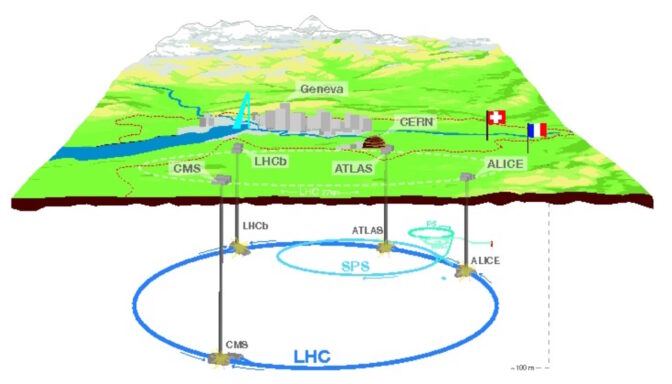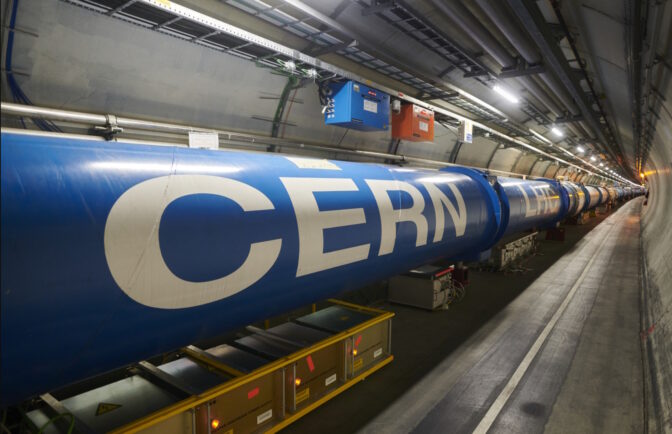Editor’s note: This is part of a series profiling researchers advancing science with high performance computing.
Maria Girone is expanding the world’s largest network of scientific computers with accelerated computing and AI.
Since 2002, the Ph.D. in particle physics has worked on a grid of systems across 170 sites in more than 40 countries that support CERN’s Large Hadron Collider (LHC), itself poised for a major upgrade.
A high-luminosity version of the giant accelerator (HL-LHC) will produce 10x more proton collisions, spawning exabytes of data a year. That’s an order of magnitude more than it generated in 2012 when two of its experiments uncovered the Higgs boson, a subatomic particle that validated scientists’ understanding of the universe.
Girone loved science from her earliest days growing up in Southern Italy.
“In college, I wanted to learn about the fundamental forces that govern the universe, so I focused on physics,” she said. “I was drawn to CERN because it’s where people from different parts of the world work together with a common passion for science.”
Tucked between Lake Geneva and the Jura mountains, the European Organization for Nuclear Research is a nexus for more than 12,000 physicists.

Its 27-kilometer ring is sometimes called the world’s fastest racetrack because protons careen around it at 99.9999991% the speed of light. Its superconducting magnets operate near absolute zero, creating collisions that are briefly millions of times hotter than the sun.
In 2016, Girone was named CTO of CERN openlab, a group that gathers academic and industry researchers to accelerate innovation and tackle future computing challenges. It works closely with NVIDIA through its collaboration with E4 Computer Engineering, a specialist in HPC and AI based in Italy.
In one of her initial acts, Girone organized the CERN openlab’s first workshop on AI.
Industry participation was strong and enthusiastic about the technology. In their presentations, physicists explained the challenges ahead.
“By the end of the day we realized we were from two different worlds, but people were listening to each other, and enthusiastically coming up with proposals for what to do next,” she said.
Today, the number of publications on applying AI across the whole data processing chain in high-energy physics is rising, Girone reports. The work attracts young researchers who see opportunities to solve complex problems with AI, she said.
Meanwhile, researchers are also porting physics software to GPU accelerators and using existing AI programs that run on GPUs.
“This wouldn’t have happened so quickly without the support of NVIDIA working with our researchers to solve problems, answer questions and write articles,” she said. “It’s been extremely important to have people at NVIDIA who appreciate how science needs to evolve in tandem with technology, and how we can make use of acceleration with GPUs.”
Energy efficiency is another priority for Girone’s team.
“We’re working on experiments on a number of projects like porting to lower power architectures, and we look forward to evaluating the next generation of lower power processors,” she said.
To prepare for the HL-LHC, Girone, named head of CERN openlab in March, seeks new ways to accelerate science with machine learning and accelerated computing. Other tools are on the near and far horizons, too.
The group recently won funding to prototype an engine for building digital twins. It will provide services for physicists, as well as researchers in fields from astronomy to environmental science.

CERN also launched a collaboration among academic and industry researchers in quantum computing. The technology could advance science and lead to better quantum systems, too.
In another act of community-making, Girone was among four co-founders of a Swiss chapter of the Women in HPC group. It will help define specific actions to support women in every phase of their careers.
“I’m passionate about creating diverse teams where everyone feels they contribute and belong — it’s not just a checkbox about numbers, you want to realize a feeling of belonging,” she said.
Girone was among thousands of physicists who captured some of that spirit the day CERN announced the Higgs boson discovery.
She recalls getting up at 4 a.m. to queue for a seat in the main auditorium. It couldn’t hold all the researchers and guests who arrived that day, but the joy of accomplishment followed her and others watching the event from a nearby hall.
“I knew the contribution I made,” she said. “I was proud being among the many authors of the paper, and my parents and my kids felt proud, too.”
Check out other profiles in this series: